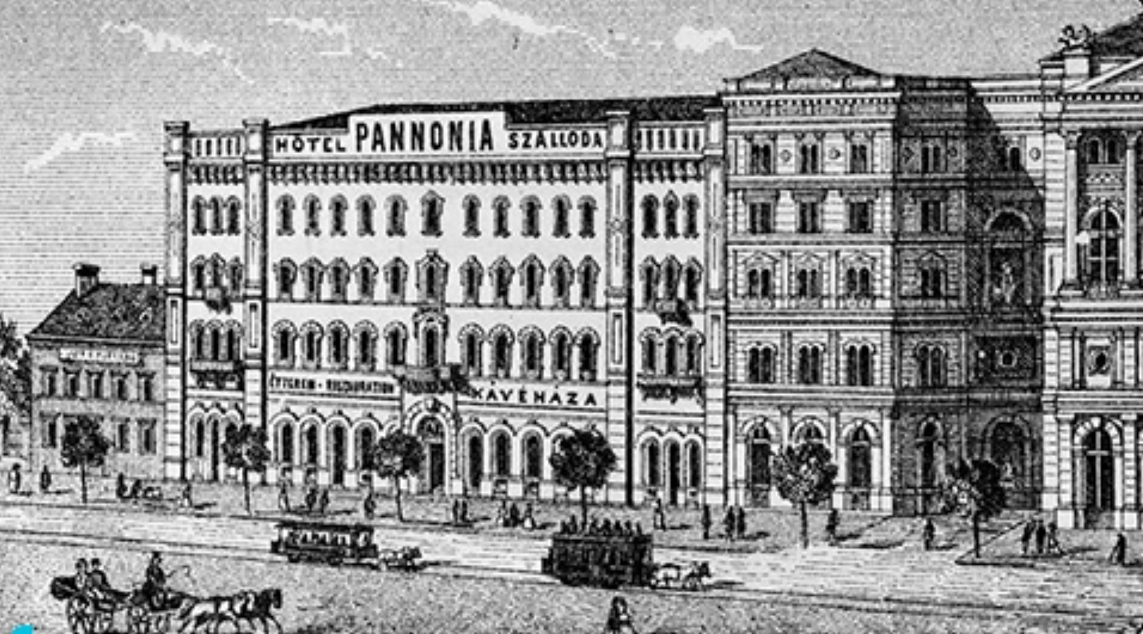Hotel Pannónia
Budapest, 7th district, 5 Rákóczi Street
The building of Hotel Pannónia (5 Rákóczi Street)
This is what it looks like today

The building of Hotel Pannónia (5 Rákóczi Street)

This is what it looks like today
THE IMPORTANCE OF THIS PLACE
This is what it looks like today Source: http://urbface.com/index.html THE IMPORTANCE OF THE PLACE Pál Ranschburg and his wife were hidden in the basement of this hotel during the deportation of Jews, with the help of hotel manager Pelczmanné Maca Glück, a former patient of his. When the extreme right-wing Arrow Cross Party seized power on October 16h, 1944, atrocities against Jewish people started. On October 17th, the government ordered to reduce the number of people unaffected by the anti-Jewish laws from 8000 to one-tenth of this number and to take the rest of the Jews to the detention camp at the brick factory. The list of ”not originally Christian” Jewish physicians was handed to the government already in 1941, when Hungary entered the war, by the National Association of Hungarian Physicians (Magyar Orvosok Nemzeti Egyesülete, MONE).
After Germany occupied Hungary on March 19th, 1944, the president of the medical association submitted a request to the Ministry of the Interior, asking to get the Jewish physicians, until then occupied in civil service, deported as soon as possible. According to post-war estimations, this measure claimed 2500 victims, about half the Jewish physicians in the country. In November, Pál Ranschburg, after repeated warnings from his friends, accepted the hiding place offered to him in the basement of Hotel Pannónia. Both he and his wife got dysentery here, but neither of them could not receive medical treatment. He died on January 12th, 1945, a week before Budapest was liberated, in the basement of the hotel.
THE HISTORY OF THE PLACE
The history of Hotel Pannónia goes back until1867, when a three-story hotel, including a block of flats with a gallery, an elegant café, a summer night club, and a stable was built here. This café was frequented by famous politicians from the neighboring National Assembly (at present Bródy Sándor Street) and actors from the National Theater on Kerepesi (now Rákóczi) Street, as well as writers and other celebrities (such as Sándor Bródy, Gergely Csiky, Géza Féja, Jenő Heltai, Gyula Illyés, Kálmán Mikszáth, Frigyes Podmaniczky, Gyula Reviczky, and Ede Szigligeti). The terrace of the hotel hosted the famous yearly Actors’ Fair on Palm Sunday, an event during which rural theater directors chose new actors for their troupes. In 1941, Frigyes Glück’s daughter, the widower Mrs. Pelzmann, born Mici Glück, created 12 new bathrooms and also increased the number of rooms with a telephone. Hotel Pannónia was taken into state ownership in 1947 and became one of the sites of the Bolyai János Student Hostel for the Faculty of Natural Sciences of Eötvös Loránd University of Sciences..
Sources
Paksa Rudolf: Szálasi Ferenc és a hungarizmus, Jaffa Kiadó, Budapest, 2013
Ranschburg, Ágnes Hildegard (November 29, 2014). Történelmi üvegcserepek. Ranschburg rabbi léptei nyomán. Liget Műhely. https://ligetmuhely.com/liget/tortenelmi-uvegcserepek/ https://ligetmuhely.com/liget/tortenelmi-uvegcserepek/
Urbface, http://urbface.com/index.html